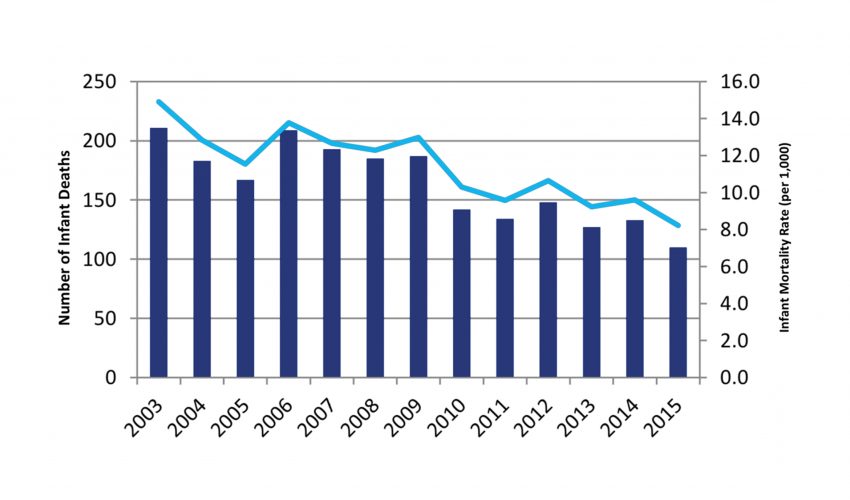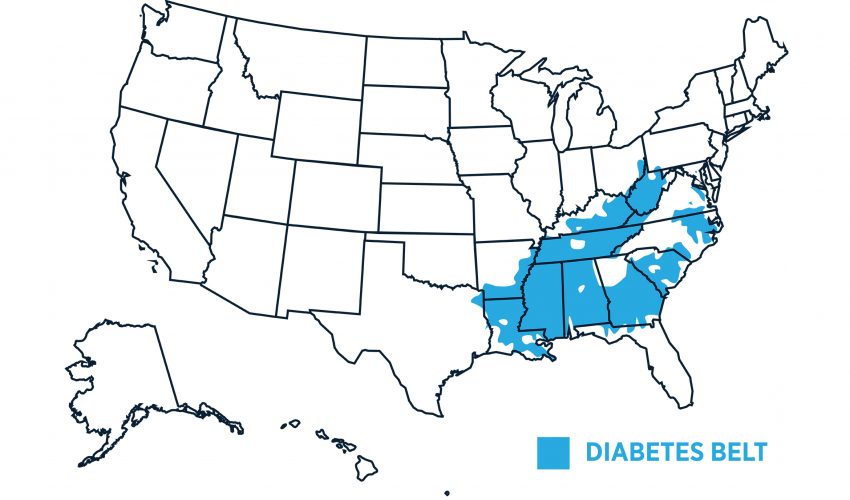Many cities in the South get a bad rap when it comes to health, and Memphis is no exception.
But the full picture of health in Memphis is much more nuanced than just “good” or “bad.” Today, more Memphians than ever before are working together to improve health in their city.
Here are some things — good and bad — you may not know about health in Memphis.
1. Memphis is a good place to work.
People spend half their waking hours at work, so job satisfaction plays a big part in health. With a median age of 35, Memphis has a lot of young professionals interested in building careers in the city, and the low cost of living makes it an attractive place to settle down.
Memphis was also recently ranked as the #7 best city in the U.S. for jobs by Glassdoor, with a job satisfaction rating of 3.4 out of 5.The top 3 employment sectors in Memphis are:
- Professional and business
- Education and health
- Government
2. Life expectancy is low.
At 76 years, the life expectancy in Memphis is comparable to Tennessee’s rate but lower than the 78-year expectancy in the U.S. Several ZIP codes on the western side of Memphis experience life expectancies as low as 69 or 70 years.
Health department studies found that the 35,000 residents in 38106 and 38126 (an area of South Memphis stretching from Beale Street to Nonconnah Creek) were living an average of 69 years — which is 13 years less than the 82-year lifespan in Shelby County’s healthiest ZIP code: Collierville’s 38017.

Click the graphic above to read about minority health in Memphis and Tennessee with BlueCross director of quality improvement Rafielle Freeman.
3. Memphis is big on bikes.
In 2010, Bicycling magazine ranked Memphis one of the least bike-friendly cities in the U.S. After that, the city went to work, adding bike lanes, installing greenways and establishing bike share stations. Memphis also expanded the Greenline, an 11-mile paved urban trail that connects Midtown to Cordova through Shelby Farms Park.
Two years after the initial ranking, Bicycling magazine named Memphis the nation’s most improved city for biking.

Click the image to read how the bike share program in Memphis does more for riders than improve their health.
4. Many Memphians struggle to get healthy, affordable food.
A food desert is any community where 33% of the population and/or at least 500 people live more than a mile away from a grocery store and don’t own a car.
In Memphis, food deserts exist in Whitehaven, Orange Mound, South Memphis and North Memphis.Other obstacles to healthy eating include the fact that:
- Nearly 200,000 Shelby County residents are food insecure, which means 21% of the population has difficulty getting nutritious food for an active, healthy lifestyle.
- For every 100,000 people in Shelby County, there are 73 fast-food restaurants but only 20 grocery stores. So fast food outnumbers fresh food options nearly 4 to 1.
- According to the Mid-South Food Bank, 76% of clients eat food past its expiration date, grow food at home, sell personal property or water down food or drinks in order to get enough food.
5. Memphis is having healthier babies.
Infant mortality is the number of children out of every 1,000 who die before turning one. In 2004, Memphis had more infant deaths than any other city in the country with a rate of 12.8.
That rate has decreased in recent years, hitting an all-time low of 8.2 in 2015.
Infant mortality rate in Shelby County

6. Diabetes is an epidemic.
On average, one person dies every day from diabetes in Shelby County. One in every three adults has diabetes, and 60,000 new cases have been reported in the past 10 years.
According to the BCBS Health Index, diabetes negatively affects quality of life in Shelby County for 6.4% of people, which is higher than both the state (5.9%) and national (5.5%) rates.

The Southeast is home to what the CDC calls the “diabetes belt,” which includes states where at least 11% of residents have been diagnosed with diabetes. Click the image to learn more about diabetes in Tennessee.
7. Memphis has more high school graduates than the state as a whole.
In Shelby County, 85.6% of people graduate high school, which is better than the statewide rate of 83.2%.It also slightly edges out the national rate of 85.4%. That’s important because most non-genetic health issues can be traced back to poverty and education: the less educated you are, the harder it is to stay healthy.
To learn more about health in Memphis, click here.
BlueCross Healthy Places
The BlueCross Healthy Place program is revitalizing David Carnes Park in Memphis. Click the rendering to learn more.




